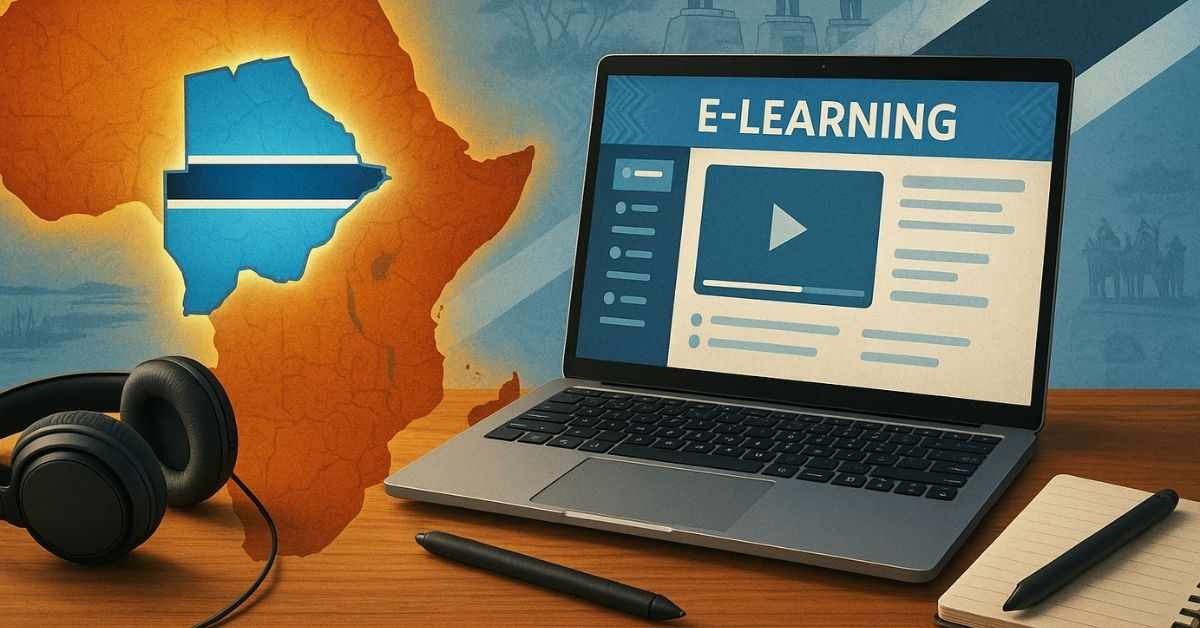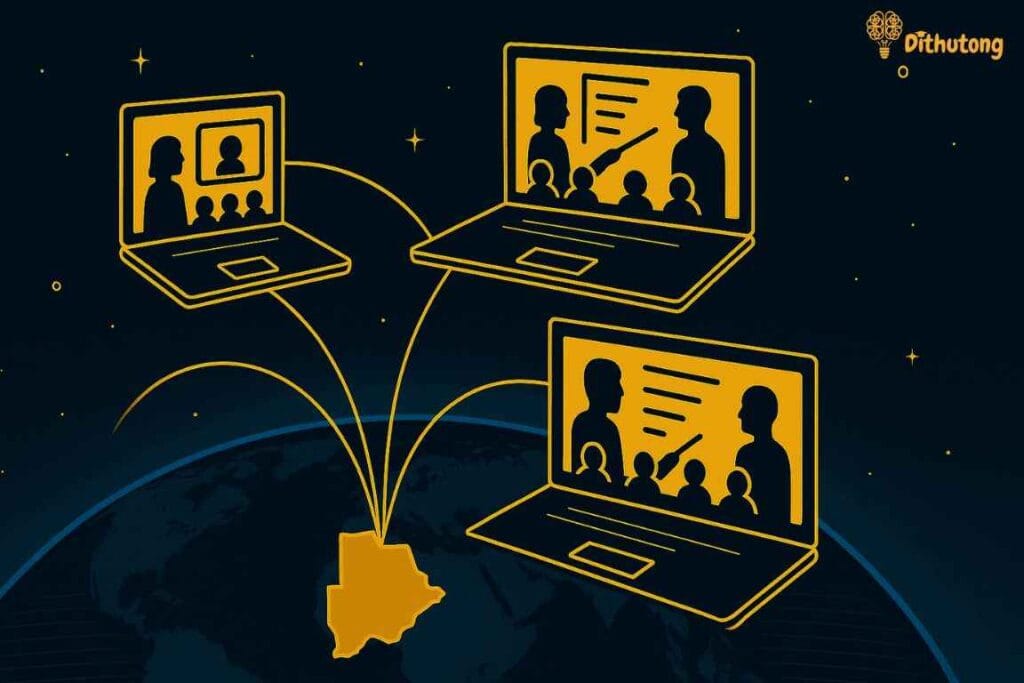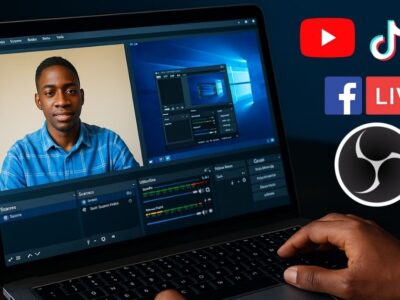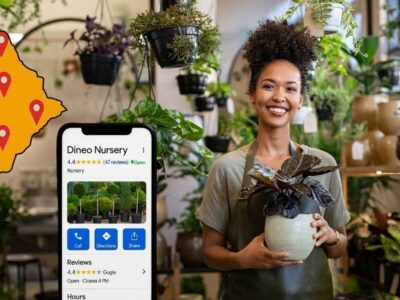
Botswana eLearning: Definition, Benefits & Examples for Modern Learners
- Posted by Tshiamo Tawele
- Categories E-Learning
- Date June 12, 2025
Table of Contents
Did you know that online learning has surged by over 900% globally since the early 2000s? Today, more people in Botswana are turning to digital platforms to advance their skills and careers. By reading this blog, you’ll gain a clear understanding of what e-learning (electronic learning) really means, how it works, and why it’s become a game-changer—especially in Botswana’s post-pandemic era. Whether you’re new to e-learning or you’ve tried it before, this post will guide you through the essential benefits, local perspectives, and future trends you need to know.
Definition of E-Learning

What Is E-Learning and How Does It Work?
E-learning definition refers to any form of learning delivered electronically through digital devices. In other words, if you’ve ever taken an online course or watched a tutorial that taught you a new skill, you’ve already experienced what is e learning. Unlike traditional classrooms, these online learning methods are flexible, allowing you to study from anywhere at your own pace.
Here is the basic online learning meaning in today’s context:
- Lessons are often delivered via videos, readings, and interactive quizzes.
- Communication takes place through forums, email, or virtual meeting tools.
- Exams or assignments can be submitted online for grading and feedback.
E-Learning in Botswana: Bridging Local Gaps
E-learning in education systems around the world has opened new possibilities, but in Botswana, it can address specific challenges like limited classroom space, teacher shortages, and remote geographical locations. By using digital platforms, learners here can access lessons without always having to travel. This reduces transportation costs, encourages continuous learning, and fills training gaps—especially vital in areas where reliable schooling options might be scarce.
How E-Learning Works
Common Online Learning Platforms and Tools
Most e-learning programs offer user-friendly online portals where you log in to access course materials.
These platforms typically include:
- Video tutorials for visual and auditory instruction.
- Discussion boards for peer and instructor interaction.
- Tools for live webinars or virtual classrooms.
- Mobile apps for on-the-go learning.
Whether you’re mastering a new language or improving your business skills, these platforms make learning more interactive than ever before.
Harnessing Internet Connectivity in Botswana
In Botswana, internet access is growing, but bandwidth can still be an issue in rural areas. To overcome this, local telecom providers are introducing more affordable data packages, and many e-learning platforms now optimize content for low-bandwidth conditions. As connectivity improves, online classes become more reliable and easier to use—even in remote villages.
Benefits of E-Learning
Why E-Learning Is Important Post-Pandemic
Many older explanations of e-learning don’t fully address the impact of the pandemic. Yet, COVID-19 caused a massive shift to remote learning worldwide. Schools closed, and many had to adapt fast. This sudden change showed just how essential online platforms are for keeping education ongoing. Post-pandemic, many institutions have continued a blended approach, balancing virtual lessons with in-person classes. In short, e-learning isn’t just a convenient alternative—it’s become a cornerstone of modern education.
Advantages for Botswana’s Education System
- Accessibility: Students in remote areas can learn from qualified instructors hundreds of kilometers away.
- Cost-Effectiveness: Lower overhead costs mean more budget can go into improving course quality instead of facility upkeep.
- Flexibility: Working adults or parents have the freedom to log in during off-hours, instead of being limited to rigid schedules.
- Scalability: E-learning courses can accommodate thousands of learners in Botswana and beyond without straining resources.
Examples of E-Learning in Action
Local Success Stories in Botswana
- Certain nonprofit initiatives now offer digital literacy programs and job readiness training online, reaching those who can’t travel to a central campus.
- Local universities have introduced blended courses that let students shuffle between online lectures and face-to-face sessions, reducing class congestion.
Global Case Studies and Insights
Looking abroad, you’ll find countless examples of e-learning transforming education. Massive Open Online Courses (MOOCs) from platforms like Coursera or edX have millions of learners worldwide. Virtual corporate training is also on the rise, helping businesses standardize employee skill levels across different regions.
The Importance & Future of E-Learning

Post-Pandemic Shifts in Online Learning
Large-scale remote teaching during the pandemic has proven that distance learning can work. Schools and universities everywhere—Botswana included—are investing in better online infrastructure. More and more employers also see the value of digital training when responding to sudden changes or skills shortages.
Emerging Trends for Botswana and Beyond
- Micro-Learning: Short, focused lessons are becoming popular, giving busy adults a simple way to upskill quickly.
- Gamification: Interactive quizzes and leaderboards make learning fun and engaging.
- AR/VR Tools: Some institutions are testing augmented and virtual reality tools for deeper, hands-on learning experiences.
Conclusion
E-learning isn’t just another fad. It’s a practical, cost-effective, and far-reaching solution that is reshaping Botswana’s educational landscape. Whether you’re a student, a working professional, or someone aiming to expand your skill set, online learning offers the flexibility to grow at your own pace.
If you found this overview helpful, subscribe to our newsletter for more insights and online education tips. Ready to start learning new skills right away? Visit Dithutong’s Online Courses page to find courses that fit your goals.
Recommended Reading
- For more on how digital platforms are transforming local communities, check out our internal blog on the Online Courses.
- Explore verified e-learning statistics and market trends from Grand View Research’s latest industry analysis on e-learning services, offering in-depth insights into the sector’s growth, adoption, and future outlook.
FAQ
What is e-learning and how does it work?
E-learning uses digital tools and the internet to deliver courses, training, and educational content. You access lessons, complete tests, and interact with instructors and peers—all through an online portal or app.
Why is e-learning important?
It’s flexible, cost-effective, and accessible across different regions. In Botswana, e-learning helps bridge education gaps, making quality learning available even in remote areas.
What are some examples of e-learning?
Examples of e-learning include online college degrees, corporate LMS (Learning Management Systems) for employee training, language-learning apps, and MOOCs like those on Coursera or edX. In Botswana, local NGOs and universities are also adopting e-learning platforms like Dithutong to deliver courses and skill programs.
Digital entrepreneur, educator, and founder of Dithutong.
With years of experience in digital marketing, SEO, and web development, Tshiamo is passionate about empowering others to learn, teach, and thrive online. From running a national business directory to helping companies grow their visibility, he understands what it takes to turn knowledge into income.
Through Dithutong, he’s building a bridge between local talent and digital opportunity — making education flexible, accessible, and rooted in Botswana’s future.










